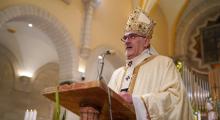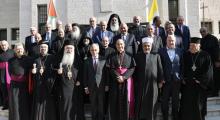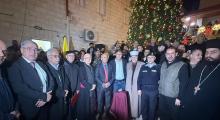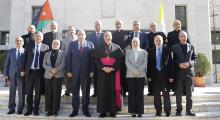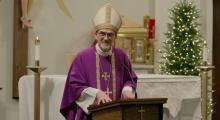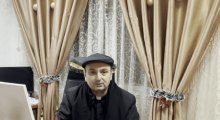Issued by the Catholic Center for Studies and Media - Jordan. Editor-in-chief Fr. Rif'at Bader - موقع أبونا abouna.org
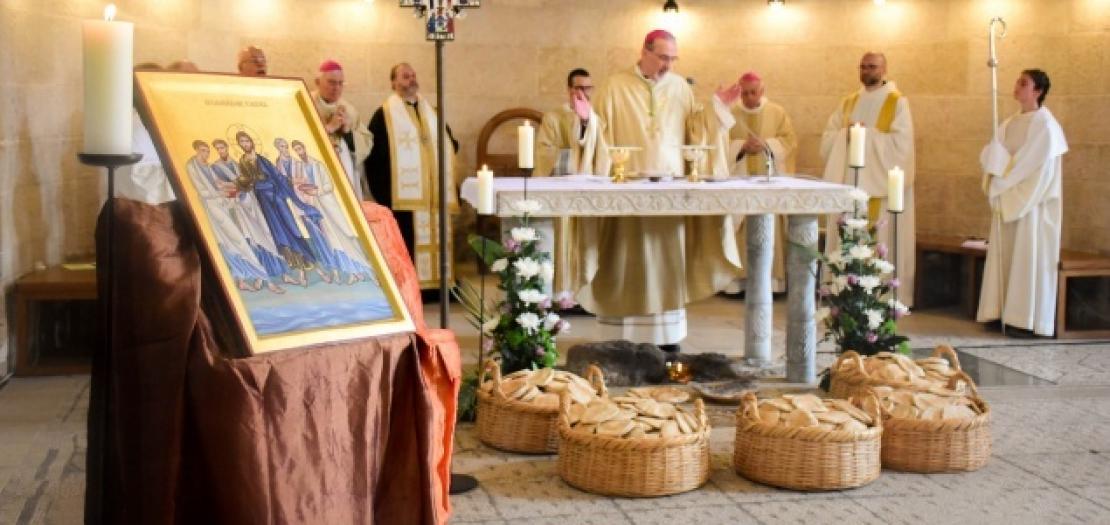
Following is the text of the meditation by Latin Patriarch of Jerusalem His Beatitude Pierbattista Pizzaballa for the 17th Sunday of ordinary time, year B, July 25, 2021:
With this 17th Sunday, the Gospel of Mark is interrupted, giving way to the Gospel of John.
In the passage following the one read last Sunday, Mark tells the miracle of the multiplication of the loaves and fishes (Mk 6:34-44); today’s Liturgy presents this same miracle, but it is reported in the fourth Gospel, of which, in the coming Sundays, we will listen to the entire sixth chapter, a lengthy reflection by Jesus on the theme of the bread of life.
In today’s passage we can distinguish two parts: there is the miracle of the multiplication of loaves and fishes, which, however, does not occupy most of the space. A great deal of space is given to the dialogue between Jesus and Philip, an important dialogue, because in it Jesus offers the framework of what He is about to do, the meaning of His gesture.
So, immediately, we understand that it will be important not just to eat this bread: it will be important to understand what you are eating, to understand where this bread comes from, and the life it fosters.
The first element of the framework is given by the Easter Feast.
The feast is explicitly mentioned in verse four, but is the background to the whole passage: the gestures of Jesus clearly refer to the figure of Moses and the forty years of Israel in the desert.
As Moses climbs the mountain and gives Israel the Law which it is to live by, so Jesus also goes up the mountain, sits down (Jn 6:3) and gives the crowd a nourishment for life.
As in the time of the Exodus, here too there is a crowd on the way; and as then, the question of bread also arises: without bread you do not travel and you do not live.
The question of bread that accompanied the entire journey in the desert, from Egypt to entering the land of freedom is: can God feed His people? And how can He do it, in such an inhospitable land?
Also in today’s passage there is a question, one that Jesus puts to Philip: and it is a fundamental question. In fact, Jesus asks Philip where does this bread, capable of feeding so many people, come from? (John 6: 5).
“From where” is an adverb that John often uses: and when he uses it, he usually always indicates a different origin from what might appear at first sight. “From where” always indicates the origin of Jesus himself, that is, the Father.
This adverb, for example, we find in chapter 2, when the headwaiter at Cana does not know where the wine comes from; in chapter 3, when Jesus speaks to Nicodemus about the Holy Spirit, the breath of life, Who you do not know from where He comes and where He is going. Then, in chapter 4, is when the Samaritan woman asks Jesus from where He gets the living water.
In the clash between Jesus and the leaders of the people, many times they wonder from where Jesus comes; if they ask Him, or better, they think they know it (John 7:27).
The headwaiter of Cana, Nicodemus, and the Samaritan woman, are united by “not knowing”: none of them knows where the gift that now is before them comes from; this is because man does not know where life comes from, does not possess it, has not created it and cannot give it to himself.
These are just the moments when Jesus reveals Himself, He reveals Himself as the One who comes from the Father and brings the life of the Father.
Whereas man thinks he knows, it is precisely then that he closes himself to the gift, like the leaders of the people, who already know everything and have nothing more to receive.
In today’s Gospel, it is Philip who “does not know” from where to get bread. One thing only he knows, a fundamental thing: he knows that what he has is not enough to buy it (John 6:7).
We could say that Philip knows that you don’t buy this bread, it is not possible to buy with money.
The bread that Jesus is about to give, which comes from the Father, cannot be bought but received, and in order to have it we must enter into a vision of gratuity and gift.
But for this to happen, so that the way to gift can re-open in the path of men, two things are necessary.
First of all, a child (Jn 6:9) is necessary who makes the little he has with him available, the little that is his life: the gift comes from God, it is true, but it cannot reach us except in what we are and have. It is the logic of the Incarnation.
And then it is necessary that this “little” passes into the hands of Jesus: hands that do not stretch out to take and possess, hands that do not keep.
If the gesture of Adam and Eve was to reach out to take, by contrast the gesture of Jesus is the gesture of the one who takes to give.
The difference lies entirely in the word Eucharist, thanksgiving: Jesus thus takes life as a gift to be thanked and shared with the brethren.
This is why His bread is enough for everyone and can nourish everyone, with abundance.
+Pierbattista


